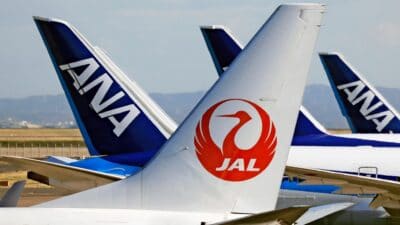- Dr. Peter Tarlow, president of the World Tourism Network, and founder of Tourism Titbits wrote this important story on team leadership in COVID-19 times
- All too often tourism professionals talk about “partnerships and team leadership”, but unfortunately what many of them actually mean by that phrase is: “let’s see what you can do for me.”
- Agency-centric tourism, however, in this period of weather-related crisis, wars, political upheavals and pandemics is becoming more and more difficult to manage successfully.
Communities and even entire nations need to work together toward a common good.
To help you achieve this level of cooperative marketing and success consider some of the following ideas:
· See your colleagues as equals rather than as people whom you need to tolerate. All too often we tend to view tourism colleagues only through the prism of our own business. There is no one tourism business; rather travel and tourism is a living system of multiple living parts that work together very much in the same fashion as the human body. If anyone part fails, the whole system is liable to feel the impact.
· Develop mutual respect and trust. It is essential that there be a common tourism goal that runs throughout the same system. Although different people have different skills and ability levels, the bottom line is that goal attainment is everyone’s job. Tourism officials need to remember that they are in a professional situation, they do not need to become their colleagues’ personal friends, but they do need to develop a good working relationship.
· Do not be afraid of going with your gut. There are times when no matter what the information seems to say your gut tells you that this is not the correct decision. Often intuition can play an important role in decision-making. While we never want to ignore data, do not ignore your gut feelings either.
· Try to develop common experiences by spending time with colleagues. Often, we judge others incorrectly because we assume that we understand the other person’s business. It is not a bad idea for CVB directors to spend a bit of time working within hotels, restaurants, and attractions to understand from a first-hand perspective what the challenges and opportunities are. In a like manner, hoteliers who may be critical of a city’s marketing efforts might spend a day a year at a CVB or tourist office to learn the inside story regarding area-wide marketing or vice versa.
· Develop a united front. No matter what the internal arguments in your organization might be, they should remain strictly internal. It is highly destructive for a tourism industry when its internal arguments are made public or leaked to the press. What goes on inside boardrooms should stay in the boardroom. Teach people in the industry that responsibilities produce new responsibilities and that it is a lot harder (and more professional) to work at keeping a group together than tearing it apart.
· Teach each other. Go to other places and take notes, then share what you have learned with your colleagues. Your community does not need to be the first with an innovative idea, but rather learn from others and then perfect their ideas. Take the essentials from each idea and then adapt the ideas to your particular situation.
· Develop a mentor system. Tourism is such a complicated field that we all need mentors. Mentors should be more than teachers. Mentors should be people who force us to see the overall big picture and how each of tourism’s components fit together. Good mentors should also serve each of us as networking agents who can introduce us to people outside of our business circles. In an industry where customers often do not tell us their true complaints and simply do not return, all tourism officials need mentors who can act as confidants, expectation setters, reality checkers and at the same time aid them in finding new approaches to persistent problems and new challenges.
· Decide on how you are going to allocate precious resources. No community or country has unlimited resources. Do the research first to make sure that your resource allocation makes sense both in the short term and in the long term. In developing resource allocations, begin to think out of the box. For example, is there a relationship between security and product branding in the post 9-11 world? Does classical advertising make sense for your demographic or niche market? Lastly do not forget that there is always a lag time in tourism. That means that in this post-Covid time we are going to have to be very creative. Traditionally, periods of success reflected good work from several years back. In a like manner, coasting rather than building may cause a great deal of problems in a few years.
· Be efficient, and never forget to smile! Try to figure out how a policy can produce more than one positive outcome. Not only should we be prepared to recycle old products, but creative efficiency may also mean recycling former marketing campaigns, former policies or even recycling the way we use land. Remember that times change and a policy that may not have been successful in a particular period may become very successful in another era.
· Hire the best people that you can. The tourism industry is based on people and personality skills. Nothing can destroy a tourism industry more than people working in it who do not like people. While satisfied employees do not guarantee good customer service, angry employees almost always guarantee bad customer service. Take the time to treat people with respect and provide them with the best training possible, not only in their own area of expertise but in other areas of tourism as well. When employees do something wrong do not send a surrogate but rather discipline people from the top. Remember that no matter how much tourism managers dislike disciplining others there are times when there is simply no alternative.
More on the World Tourism Network at www.wtn.travel
More on Tourism Titbits and Tourism and More: tourismandmore.com
WHAT TO TAKE AWAY FROM THIS ARTICLE:
- In a like manner, hoteliers who may be critical of a city’s marketing efforts might spend a day a year at a CVB or tourist office to learn the inside story regarding area-wide marketing or vice versa.
- In an industry where customers often do not tell us their true complaints and simply do not return, all tourism officials need mentors who can act as confidants, expectation setters, reality checkers and at the same time aid them in finding new approaches to persistent problems and new challenges.
- It is not a bad idea for CVB directors to spend a bit of time working within hotels, restaurants, and attractions to understand from a first-hand perspective what the challenges and opportunities are.























